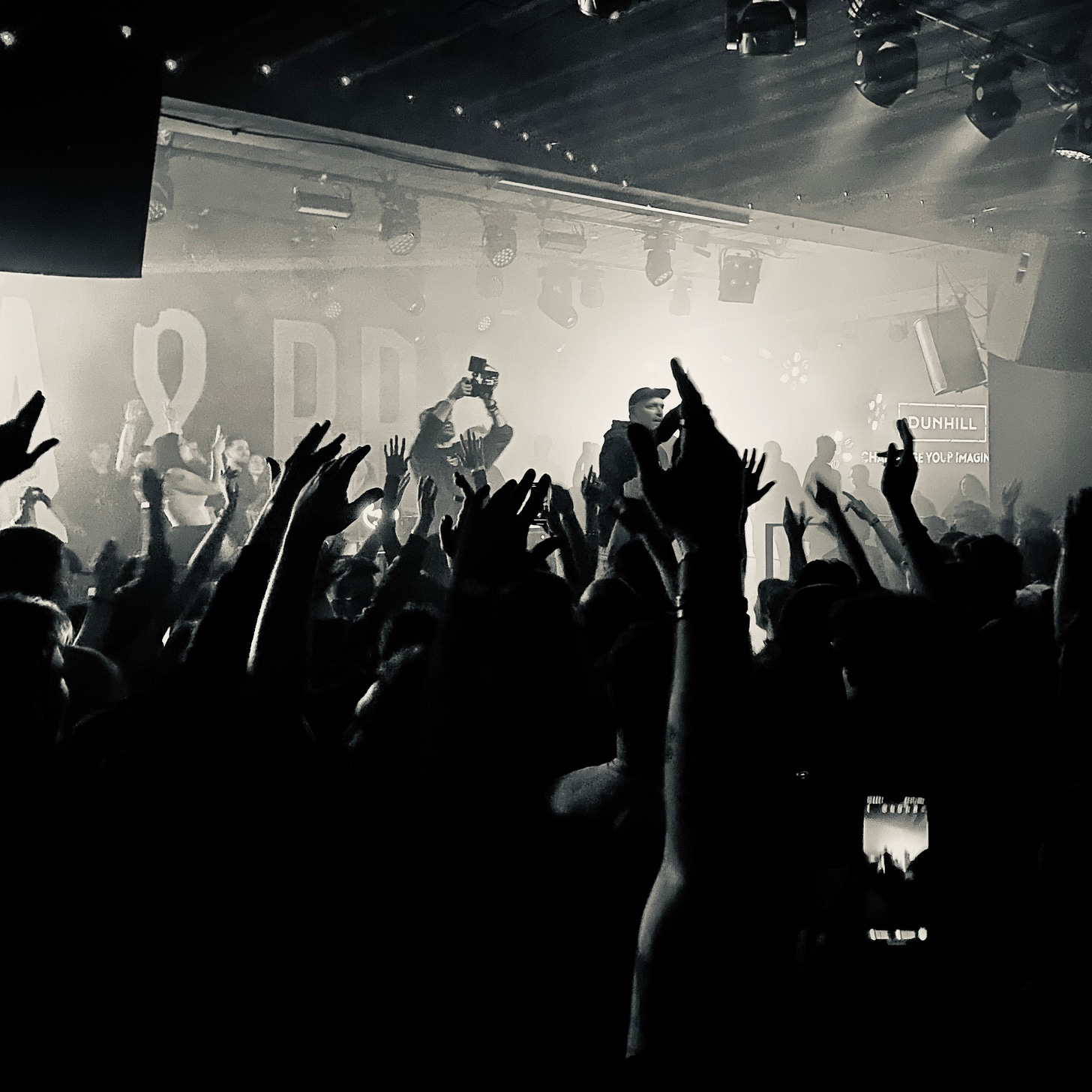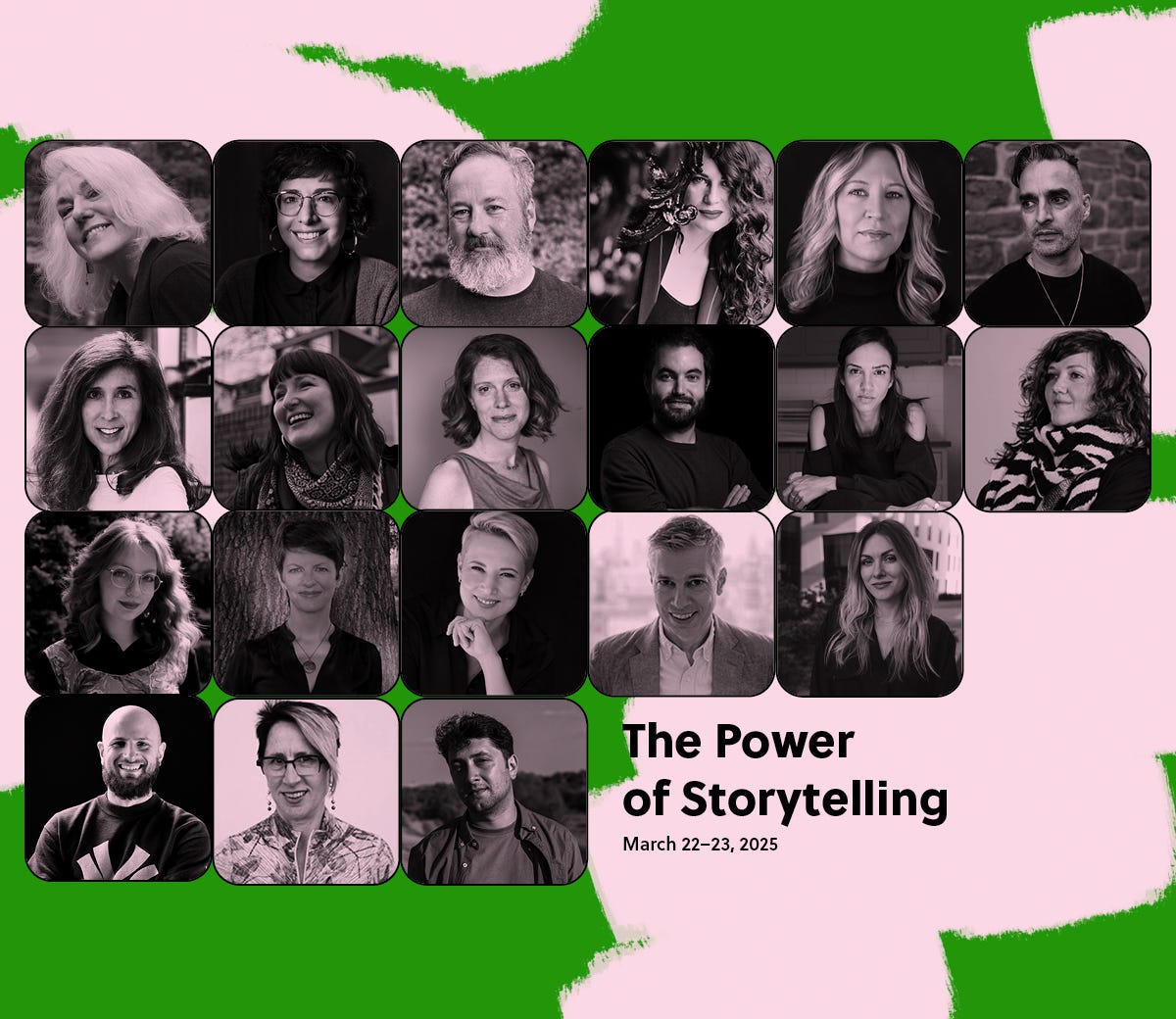Draft Four: Closing some loops
And hoping things work out.
I am writing this from a cold and gray Cluj, Romania’s second city, still barely pulling myself together after a 3AM shutdown, the result of catching part of an event my brother, who lives here, put together: the two year anniversary show of his drum and bass label, Quite Lucky. I didn’t catch his set – he went on at 3:30AM –, but I did get to see a full club smiling, bopping, and cheering. From the UBER I texted him that I was proud of what he pulled together, both over the past two years, and at the party itself. (He is nice enough to allow me to skip his sets).
He told me that promoting in the middle of Romania’s insane election season was not easy, but the turnout exceeded expectations. Since the music is not necessarily my jam, it was the vibe that I loved: people partying like the world outside isn’t coming to an end.
Because it isn’t – or it won’t – although it feels like it.
The presidential elections were cancelled, Romania is divided, and every day feel like we’re under threat: from people manipulating our social media feeds, to mainstream parties ignoring the rule of law, to extremists trying to force their way into power, to TV anchors amorally stoking the flames of conflict and division.
If the list above is what brought you to this newsletter over the past two weeks, welcome. But following in the footsteps of my brother I’ll (largely) sidestep our current predicament and do something more in line with the mess that is Draft Four: close some 2024 loops before the last couple of letters of the year, where we’ll talk about some journalism lessons, and do a personal wrap-up.
*
The first few months of the year were dominated by a story I worked on with my colleague Carla Lunguți, about a case of sexual harassment at the University of Bucharest, more specifically at the Journalism school, the one I also graduated from. The fallout from writing about the professor who for years had propositioned his students was that he eventually quit, and the University did push some changes to its codes and procedures.
The reason I bring it up again is because the man is heavily involved in TikTok disinformation for Călin Georgescu, the largely unknown figure whose first round victory largely led to the cancelation of the elections.
The former professor is your run of the mill conspiracy theorist, but that’s nothing new – it’s something he has done in the past, especially during the pandemic. Part of his story that we never got into this Spring is that, for years, he was also involved in creating and administering dubious Facebook pages that promoted conspiracies and alarmist news, only to suddenly shift into candidate-promotion mode come-election time. And we’re talking about years ago, not just recently. So when Romanian journalists revealed the scale of such operations in recent weeks, it made sense. What many of us are still coming to terms with is that these pages, social media accounts, or the incredible number of fake news sites have rewired the minds of so many of our friends and families. (Just read what Victor Ilie and Luiza Vasiliu have been uncovering; their newsletter is something to subscribe to).
One loop I haven’t closed in this letter is the sadness over not getting to go back to teaching at the University. I do believe that our stories about their complicity have made them less inclined to renew my contract, and they didn’t. A couple of months back the group of us who had taught narrative journalism over the past few years wrote a letter to the dean and the president of the University, bemoaning the school’s activity and its communication. We also CCed the student representatives. The administrators didn’t reply at all, and the student representatives declined to pick a side, which was politically savvy, but nevertheless dispiriting.
*
A second update is around the idea of starting some editorial experiments that I was talking about just before the elections blew up in our face. The experiments are around a couple of questions – one of them largely technical, the other more abstract. The technical one has to do with finding new ways of working in journalism – ideally as part of an ecosystem that opens a niche between being a freelance creator (a writer of a newsletter, let’s say), and being a staffer.
The other is the questions I often return to in these letters: how can we listen to one other and build together when we don’t agree on many things, all while the fragmented information infrastructure around us – from social media, to journalism, to entertainment – keeps highlighting our differences (and profiting from them)?
I am joined by some former colleagues in trying to tackle these questions, and I’m looking for fresh perspectives, people that are details and process-oriented, and believe that care for your team and for the process is essential to quality. What we’re slowly rolling out is a pilot project to test how you can serve an ecosystem of newsletter writers with strategic advice and brand development. (We didn’t get the grant we tried to, but that won’t stop us).
We’re also trying to secure 100.000 Euros in a fundraiser, money that we’d put to use in 2025 for the experiment above and many others. We’re more than 2/3 of the way there (a little over 70K), and we’re looking for a few more companies to sponsor our NGO to cross the threshold: you have all the details here (in Romanian) in case you can help or know somebody who might.
*
The final one is around the most joyous thing I’m part of at the end of 2025: the return of The Power of Storytelling, a conference I started with my DoR colleagues in 2010 with the idea that well-crafted stories can bridge divides, heal wounds, inspire action and create change. In 2020 it was supposed to have its 10th anniversary edition, which never happened because of COVID. Then Russia invaded Ukraine, DoR closed at the end of 2022, and we didn’t think it’d be back.
Well, not only is it back, but we just announced the third and final wave of speakers. There’s 20 of them and that makes it our largest edition thus far and, from the looks of it, one that will be sold out way ahead of its March 22-23 due date.
Actually, if registering was on your list of things to do, I’d suggest you grab your seat today.
Putting it together though, remains tough.
I told you about the costs a few weeks back, and it’s not getting cheaper. We just did another simulation of the predicted costs, and we’re hovering around 210,000 Euros. Lunch alone for 550 people on two conference days is around 30,000 – taxes and catering logistics included. And yes, we have to use the venue’s catering – it’s part of the contract.
Some days I imagine pulling something like this conference off without sponsors: but that would bring the cost of an individual ticket to 380 Euros. No way. Our 150 Euros is way less than many two-day events in Romania, but even so it’s too expensive for many of the journalists and civic leaders we want in the room – so we’re trying to find extra sponsors to bankroll some seats for them.
Speaking of sponsors – my colleague Carla has done an amazing job of bringing us close enough to our conference fundraising goal, close enough we’re now optimistic we’ll meet it, but we’d be lying if we said it was easy. Some companies are a joy to converse with, others remain elusive – the level of ghosting far outperforms rejection when you do this kind of work –, and a small number had what we considered to be unreasonable demands for the funding they would provide.
Corporate funding is not the ideal model, but then again, when you’re trying to build things at scale in Eastern Europe – valid for media, cultural events, and others – nothing is. The best you can do is have a blend of funding sources, and clear red lines, even though that often means saying “no” to money you actually need to deliver quality.
Delivering quality is expensive, and the money that exists – just like in journalism – goes towards reach and eyeballs, often ignoring quality and direct impact. From a business standpoint, it makes sense. But how are we going to fund initiatives, projects, media that aim for complexity, depth, connection, and a feeling of belonging since, by their very nature, they won’t be sexy enough for large numbers, or willing enough to bend to easy event marketing hacks such as asking company representatives as speakers, branding talks, or plastering the stage with logos and products?
We’ll keep you updated with what we’re learning.
We also have a team setback, as our project manager has stepped away for personal reasons. We could really use more partners in crime who can meet some of those elusive criteria I mentioned above: be mission-driven, detail and process oriented, excel at tools such as spreadsheets or Slack, and be a team player. And it’s not only us that need such people –this is the kind of unicorn many newsrooms, NGOs, cultural entities are searching for. Here’s to a 2025 that brings even more of them into the light.
SIDE DISHES:
Speaking of the conference, one of our speakers is Rachel Louis Snyder, who has written one of the most important books on domestic violence – No Visible Bruises. Last year, she also published a terrific memoir about growing up without a mother, rebelling against conformity, and finding herself in the struggle. It’s called Women We Buried, Women We Burned.
Another conference guest is the amazing narrative podcast editor Alison MacAdam. If you’re looking for something to binge that is in another world from all the craziness we’re living through, try Tested. Or if you want to understand a little about Iran’s way of looking at journalists, try 544 Days.
This holiday I’ll be reading entries for the European Press Prize (the entry deadline was yesterday). Here’s a Romanian story by Elena Stancu and Cosmin Bumbuț that made the shortlist in 2023 that’s both beautiful and heartbreaking and says so much about the Romanians that feel we have abandoned them: “They left the country because of domestic violence, poverty and unemployment. They left their children home alone, were blamed and judged for it, sent money to their families and contributed to Romania’s economic growth. They paid for it with years of their lives and, sometimes, with their health. Italy and Romania stood only to gain.”
Let’s end in Italy, on a different note. The National’s Rome live album is now fully online and beautiful doesn’t capture what happens over 21 tracks.


